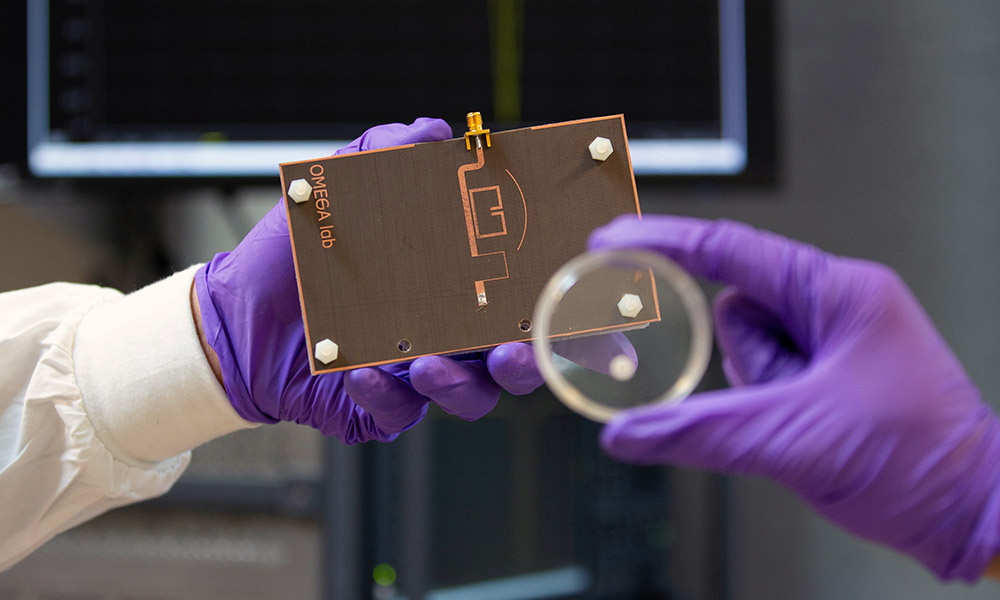
New sensor provides quick test to measure antibiotic resistance. UBC researchers have developed a method for monitoring bacterial responses to antibiotics in health-care settings that opens the door to personalized antibiotic therapy for patients.
Using microwave sensing technology, UBC Okanagan Assistant Professor Mohammad Zarifi and his team at the Okanagan Microelectronics and Gigahertz Applications (OMEGA) Lab have developed a low-cost, contactless, portable and reusable microwave sensor that acts as a fast and reliable evaluation tool for measuring antibiotic resi...
Read More








Recent Comments